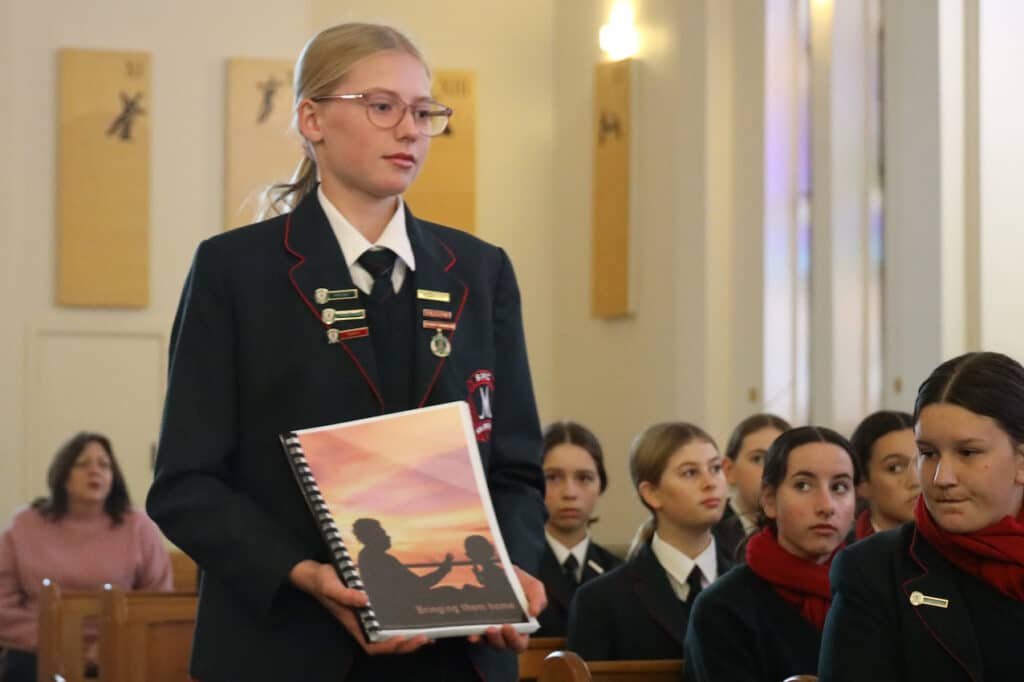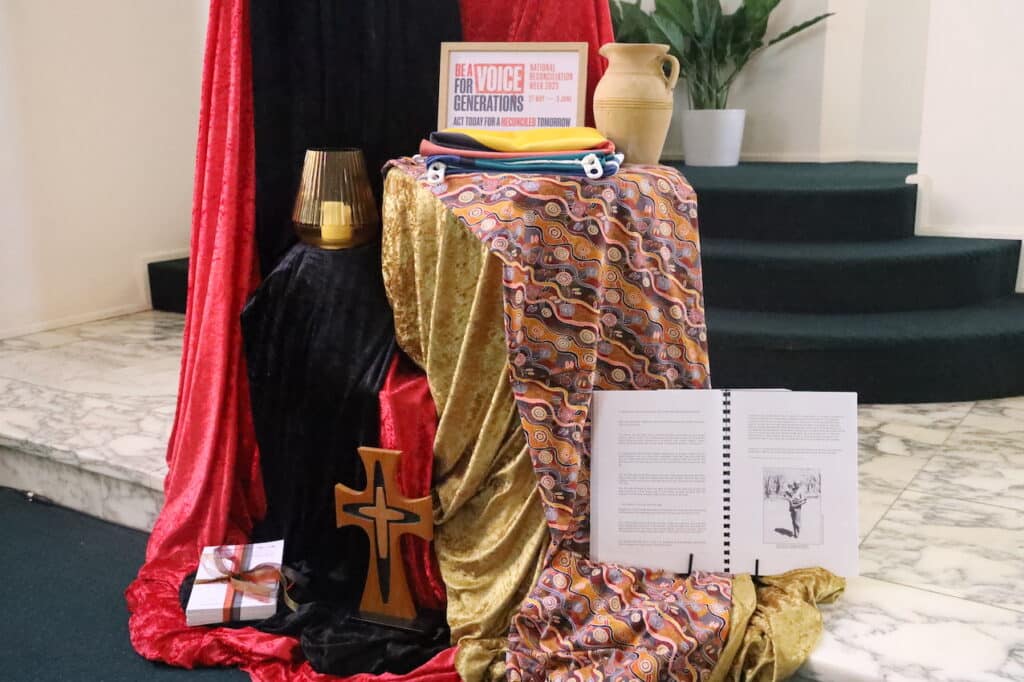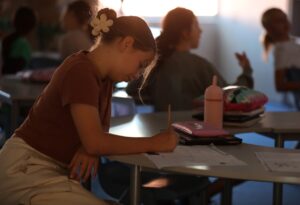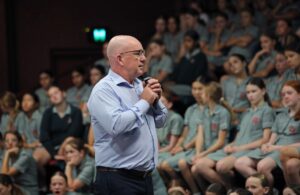A Journey of Healing & Reconciliation Week 2023

The first National Sorry Day was held on 26 May 1998, one year after the Bringing Them Home report was presented to parliament. The Bringing Them Home report was the result of an inquiry into the forcible removal of Aboriginal and Torres Strait Islander children from their families and recommended an apology and reparations to Aboriginal and Torres Strait Islander people.
Today, as a College, we gathered to acknowledge the past policies and practices which caused hurt, dispossession and loss of connection, language and identity for Aboriginal and Torres Strait Islander peoples. We acknowledge that there needs to be recognition of the impact of past policies and practices and healing between non-Aboriginal and Aboriginal peoples.
During his monumental visit to Australia in 1986, Pope John Paul II reminded Australians that “For thousands of years, this culture of yours was free to grow without interference by people from other places. You lived your lives in spiritual closeness to the land, with its animals, birds, fishes, waterholes, rivers, hills, and mountains. Through your closeness to the land, you touched the sacredness of man’s relationship with God, for the land was the proof of a power in life greater than yourselves.”

This National Sorry Day, we reflect on the need for genuine reconciliation – not just in words, but in our deeds and actions. Genuine reconciliation requires acknowledgement of the harm done by those enacting past policies and those who did not act out against these policies so that healing can reach the whole community. Today, and every day moving forward, we are invited to be brave and tackle the unfinished business of reconciliation so we can make change for the benefit of all Australians.
Immediately following National Sorry Day, or Journey of Healing as it is now called, is National Reconciliation Week. This week is framed by two very significant dates. 27 May is the anniversary of the 1967 referendum in which over 90% of Australians voted to give the Commonwealth the power to make laws for Indigenous people and include the original inhabitants in the census. 3 June marks the 11-year anniversary of the High Court of Australia’s decision in the MABO case. The decision recognised the Native Titles Rights of the Aboriginal and Torres Strait Islander peoples, the original inhabitants of the land. It overturned the myth of ‘terra nullius’, that the country was empty prior to colonisation.
The theme for National Reconciliation Week this year is ‘Be A Voice For Generations’. The theme encourages all Australians to be a voice for reconciliation in tangible ways in our everyday lives – where we live, work and socialise.
Research shows large community support for the next steps in Australia’s reconciliation journey, including the Voice to Parliament, treaty-making and truth-telling. For the work of generations past and the benefit of generations future, let’s choose to create a more just, equitable and reconciled country for all.
Let the prayer for the Journey of Healing guide us this Reconciliation Week.
Almighty and loving God,
you who created ALL people in your image,
Lead us to seek your compassion
as we listen to the stories of our past.
You gave your only Son, Jesus,
who died and rose again so that sins will be forgiven.
We place before you the pain and anguish
of dispossession of land, language, lore,
culture and family kinship
that Aboriginal and Torres Strait Islander peoples
have experienced.
We live in faith that all people
will rise from the depths of despair and hopelessness.
Aboriginal and Torres Strait Islander families
have endured the pain and loss of loved ones,
through the separation of children from their families.
We are sorry and ask God’s forgiveness.
Touch the hearts of the broken, homeless
and afflicted and heal their spirits.
In your mercy and compassion,
walk with us as we continue our journey of healing
to create a future that is just and equitable.
Lord, you are our hope.
Amen.
(Used with the permission of the Aboriginal and Islander Commission of the National Council of Churches in Australia, (NATSIEC) 2003)

The Power of Expectations in Shaping Student Success – Jennifer Oaten
Discover the transformative impact of expectations on student success. Learn how belief shapes outcomes in education and beyond.

Inspiring Change: Earth Day 2024
Our Earth Day celebration this week was a powerful reminder of our collective responsibility to protect our planet for future generations.

Unlocking the Power of Connection: Dr Mark Williams Inspires Students
After the success of his first visit last year, we were excited to welcome Dr Mark Williams back to talk with our Years 7, 8 and 9 students this week.
- Faith, Featured
Author: Santa Maria College
Santa Maria College is a vibrant girls school with a growing local presence and reputation. Our Mission is to educate young Mercy women who act with courage and compassion to enrich our world. Santa Maria College is located in Attadale in Western Australia, 16 km from the Perth CBD. We offer a Catholic education for girls in Years 5 – 12 and have 1300 students, including 152 boarders.






